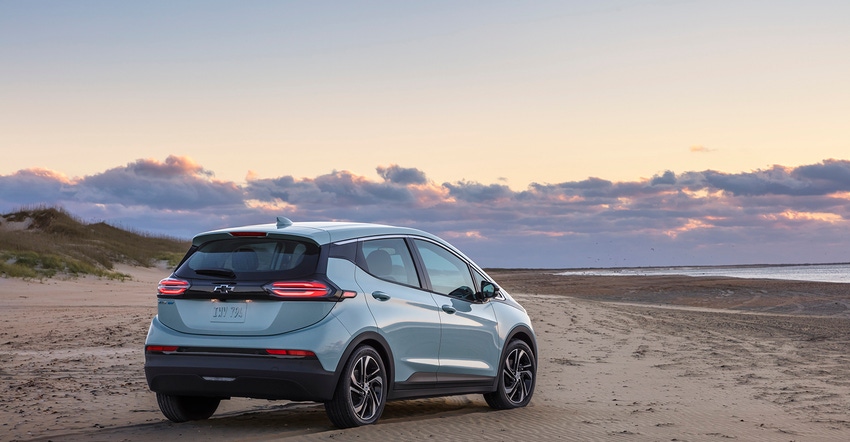EV Industry Shifts Gears: GM Layoffs Reflect Broader Slowdown
General Motors Co.'s recent layoffs are emblematic of a broader trend hitting the electric vehicle industry.

General Motors Co.’s mid-December 2023 announcement of layoffs is the latest evidence of the slowing down of the race for electrification in the auto industry. In a significant move, GM is indefinitely laying off 1,314 workers across two Michigan plants.
With Bolt EV and EUV production ending on Dec. 18, 945 workers are facing layoffs starting Jan. 1. The Detroit News reports that the Lake Orion assembly plant, initially gearing up for electric trucks on GM's Ultium EV platform, is now facing a delay, pushing the launch to late 2025. The focus has shifted to launching Chevrolet Silverado and GMC Sierra EVs at Factory Zero.
Ford's adjustments and Rivian's challenges
GM's competitor, Ford Motor Co., is also feeling the effects of the slowdown. In mid-December, Ford announced a 50% cut in production for the F-150 Lightning pickup, reducing the weekly output from around 3,200 to approximately 1,600 trucks. This strategic adjustment is a response to declining consumer demand for electric vehicles (EVs), in line with Ford's third-quarter earnings report.

Ford's F-150 Lightning feeling the chill. (Credit: Ford Motor Co.)
Rivian Automotive Inc. also faced challenges in early December, reportedly laying off around 20 employees, including key members of its long-range battery cell development team, such as Victor Prajapati, Senior Director of Cell Engineering.
Battery industry headwinds
EV battery makers are not immune to the broader slowdown. In late November, Our Next Energy (ONE), a Michigan-based EV battery startup, announced a significant reduction in its workforce, letting go of approximately 25% of its employees—128 individuals. The decision reflects ONE's efforts to navigate high borrowing costs and an uncertain economic landscape.
The EV slowdown isn't a one-size-fits-all issue. It's a puzzle with pieces like concerns about infrastructure, range anxiety, and overall ownership costs. Despite the growing environmental awareness, convincing a broader consumer base to switch gears from traditional internal combustion engines remains a road less traveled. The auto industry is navigating curves in the electric road, adapting to consumer speed preferences, and finding the right balance for the journey ahead.
About the Author(s)
You May Also Like





